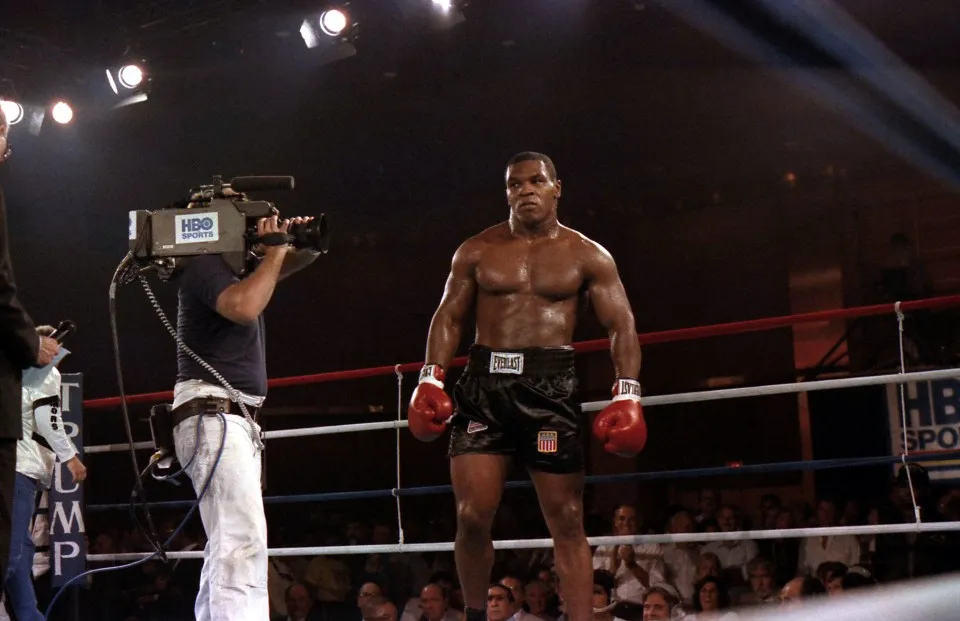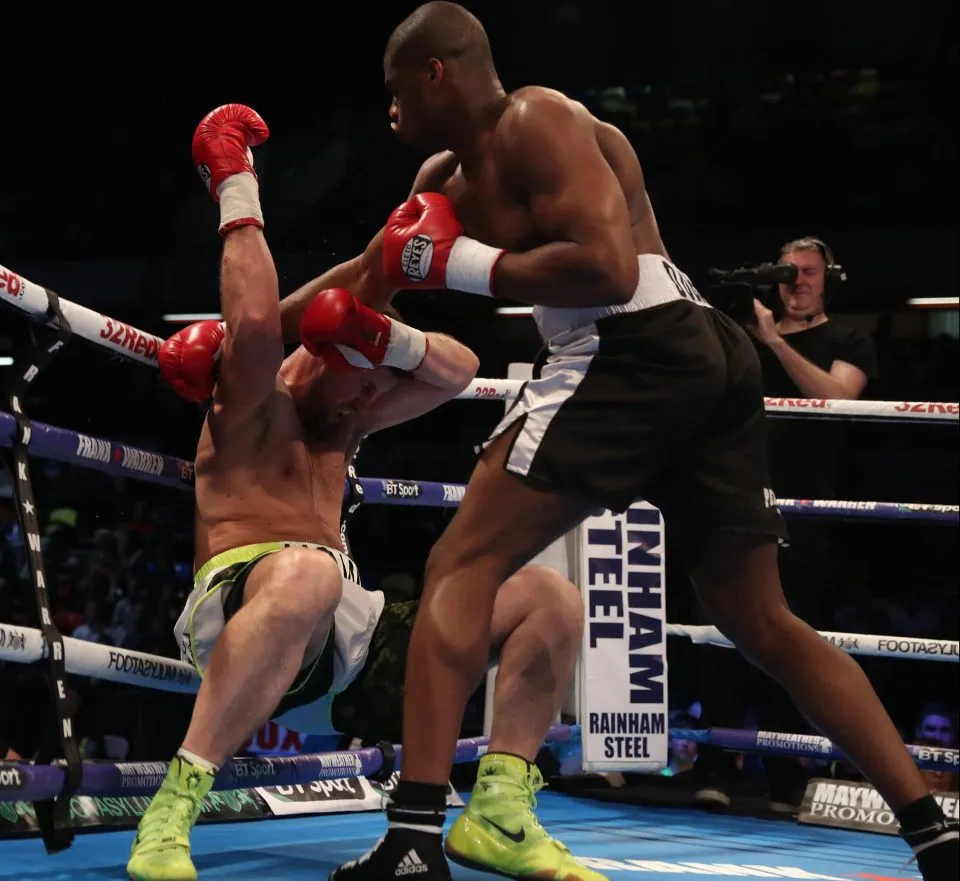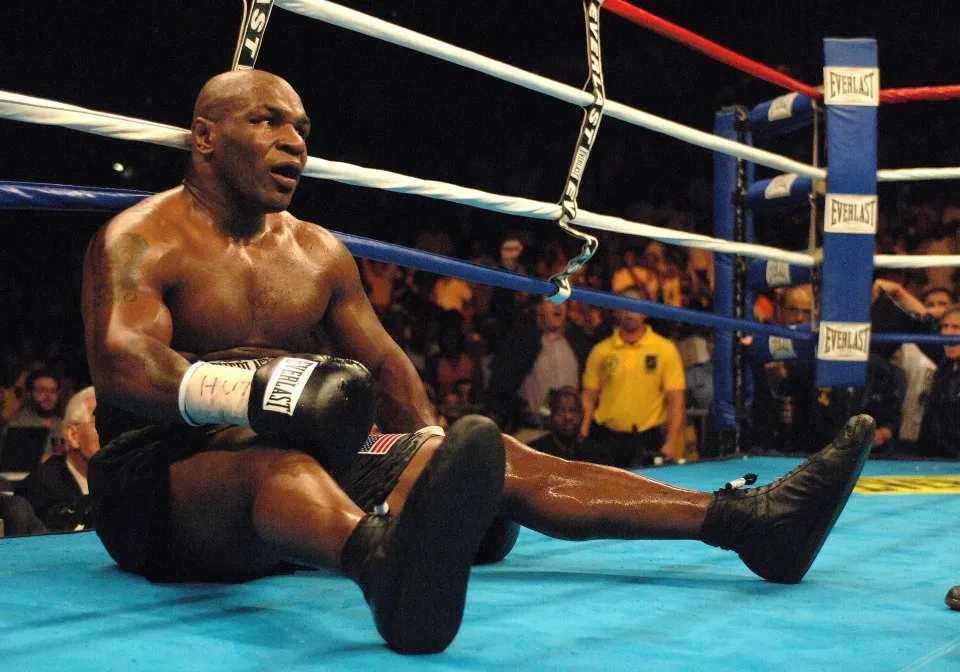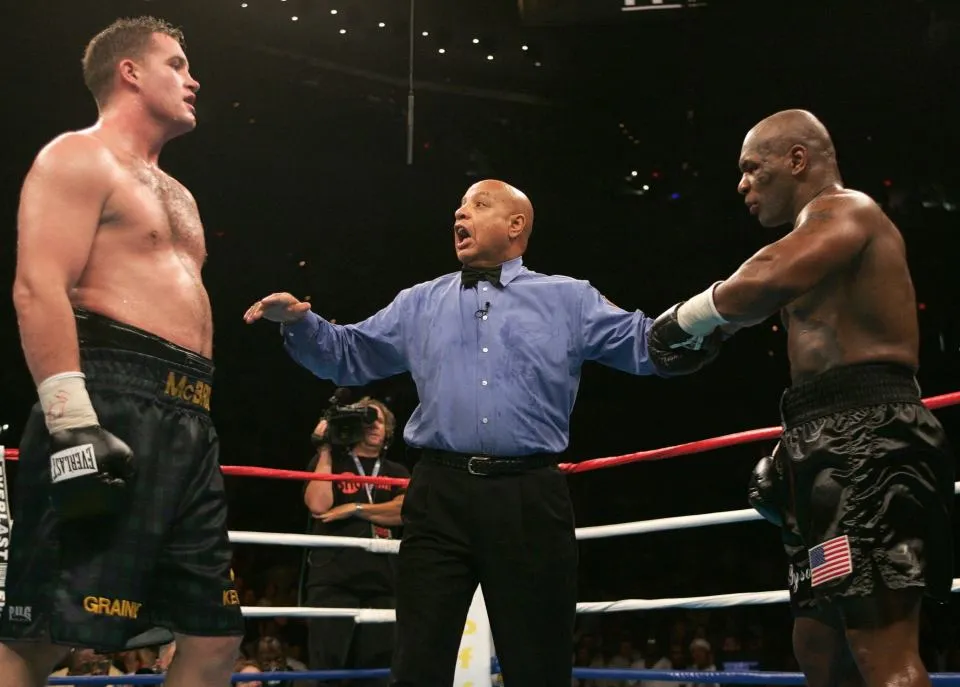Mike Tyson Quit On His Stool In His Last Pro Fight After Trying To Break Opponent’s Arm In Bad News For Jake Paul Showdown
The legacy of Mike Tyson, one of the most formidable and controversial figures in boxing history, took an unexpected turn during his last professional fight. On June 11, 2005, Tyson faced off against Kevin McBride in what would become an infamous bout, not for its grandeur but for its startling conclusion. In a dramatic and unforeseen turn of events, Tyson quit on his stool after the sixth round, signaling the end of an era. The fight’s abrupt conclusion came after a bizarre sequence where Tyson attempted to break McBride’s arm, a desperate move that spoke volumes about his mental and physical state at that point in his career.

This shocking end to Tyson’s storied career casts a long shadow over any potential future matchups, including the much-speculated showdown with social media sensation turned boxer, Jake Paul. Tyson, known for his ferocious power and intimidating presence, was a shadow of his former self during the McBride fight. The bout was supposed to be a chance for Tyson to recapture some of his former glory, but it instead highlighted the stark reality of his decline. Tyson’s attempt to break McBride’s arm was seen as an act of frustration and desperation, a clear indication that he was no longer the indomitable force that once ruled the heavyweight division.

For Jake Paul, this historical context is both a blessing and a curse. On one hand, the image of Tyson quitting on his stool and resorting to unsportsmanlike conduct might suggest that the once-feared boxer is no longer a serious threat. Paul, who has been making waves in the boxing world by defeating former MMA fighters and other non-traditional boxers, could see this as an opportunity to add a legendary name to his list of conquests. The narrative of defeating Mike Tyson, even an older version, would undoubtedly boost Paul’s credibility and marketability in the sport.

However, the reality is far more complex. Tyson’s quit on his stool was not just a moment of weakness; it was the culmination of years of physical and mental wear and tear. The Tyson who fought McBride was not the same Tyson who dominated the heavyweight division in the late 1980s and early 1990s. This distinction is crucial because it highlights the unpredictable nature of a potential Tyson-Paul fight. Tyson, despite his age and past struggles, remains a figure of immense power and experience. His recent exhibition fight against Roy Jones Jr. in 2020 showed that he still possesses significant speed and punching power, albeit not at the level of his prime.

For Jake Paul, stepping into the ring with Tyson carries substantial risk. Paul has yet to face an opponent with the depth of boxing knowledge and experience that Tyson holds. While Paul’s youth and agility might give him an edge, the psychological factor of facing a legend like Tyson cannot be underestimated. Tyson’s presence alone can be intimidating, and his ability to execute powerful punches, even in his later years, poses a real threat to Paul’s ambitions.
Moreover, the spectacle of such a fight would draw intense scrutiny and media attention. Tyson’s history of controversial moments, including his disqualification for biting Evander Holyfield’s ear and his numerous run-ins with the law, adds an unpredictable element to the mix. Paul, known for his brash personality and controversial antics, would have to navigate not just the physical challenge but also the immense psychological and media pressures that come with fighting a figure of Tyson’s stature.
In conclusion, the memory of Mike Tyson quitting on his stool in his last professional fight serves as a poignant reminder of the brutal realities of boxing. For Jake Paul, a potential showdown with Tyson is fraught with both opportunity and peril. While Tyson’s diminished state in 2005 might seem like an advantage, the unpredictable nature of boxing and Tyson’s enduring legacy make any encounter with him a high-stakes gamble. Paul must weigh the benefits of a potential victory against the risks of facing a seasoned, albeit older, warrior whose name still commands respect and fear in the boxing world.





